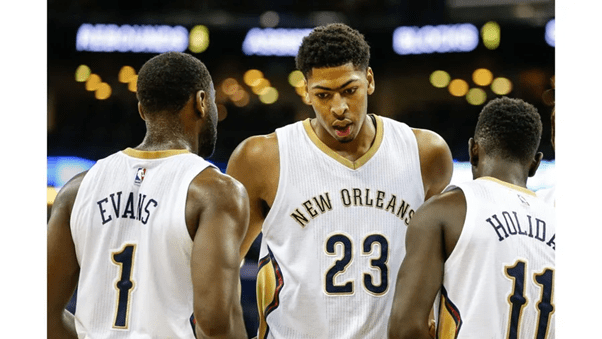
As the dust settles from the frenzy of the NBA trade deadline, the New Orleans Pelicans (32-22) emerge, not with a chorus of blockbuster deals, but with a silence that speaks volumes about their confidence in the current roster. Fresh off victories over the Blazers and Grizzlies, the Pelicans have chosen continuity over chaos, electing to keep their squad intact.
Despite the swirling rumors linking them to notable talents like Dejounte Murray and coveted big men in the league, the New Orleans front office held firm, making no substantial moves.
The Pelicans’ quietude at the trade deadline, however, was preceded by an unobtrusive but strategic maneuver earlier in the season. The club sent backup guard Kira Lewis Jr. to the Raptors in a January deal. This transaction was not about talent acquisition; rather, it was a financially motivated move to duck under the luxury tax threshold. As a result, the Pelicans are on track to save approximately $18 million. It also underscored the Pelicans’ belief in their core group, with Lewis being the sole departure in what has been an conservative trade season for the franchise.
Amid aspirations to elevate the team’s competitive edge, Executive Vice President David Griffin had previously pinpointed two particular areas of improvement: augmenting the team’s perimeter shooting and beefing up rim protection. The Pelicans managed to address the former by snagging sharpshooter Jordan Hawkins in the draft. Despite the acquisition fulfilling one ambition, the latter goal—to secure a defensively strong center—remained unfulfilled.
At the heart of their pursuits were Jarrett Allen and Wendell Carter Jr., two valuable pieces from the Eastern Conference that ultimately remained with their respective teams – the Cleveland Cavaliers and Orlando Magic – due to various strategic or contractual considerations. The Pelicans’ hunt extended to Onyeka Okongwu of the Hawks, a center whose potential they had been monitoring since the 2020 draft.
Despite ongoing and intense discussions with Atlanta, which revolved around multiple potential transactions, the negotiations reached a dead end, leaving the Pelicans to face the remainder of the season with the current cadre. Benchmarks for the team in the upcoming months are straightforward—securing a placing above the play-in tournament threshold and making a critical decision on Malcolm Hill’s tenure, whose 10-day contract occupies the 14th roster spot.
Moreover, with an eye on the future and the coming free agency, the Pelicans must contemplate the long-term prospects for center Jonas Valanciunas and reserve forward Naji Marshall, both of whom are approaching unrestricted free agency. While standing pat might be perceived as a pause, for the surging Pelicans, it might just be the breather needed before their next strategic leap forward.
What does the Pelicans’ decision to stay put at the trade deadline say about their vision for the team? It speaks of calculated patience, an acknowledgment that success requires time and coherence. The New Orleans Pelicans odds of making a deep playoff run seem to hinge on the synergy and development of their existing roster. Given their non-movement at the trade deadline, the Pelicans appear to be betting on the growth and chemistry of the young core led by Zion Williamson and Brandon Ingram. This steady course also allows the team to assess which players rise to the occasion and who may become expendable or valuable assets in potential off-season moves.
As the second half of the season charges forward, fans and analysts will closely watch how this gamble pays off, with the Pelicans’ odds not just for this season’s success but for establishing a foundation capable of enduring the rigors of an arduous 82-game season and beyond.




